Related Research Articles

The cell is the basic structural and functional unit of all forms of life. Every cell consists of cytoplasm enclosed within a membrane; many cells contain organelles, each with a specific function. The term comes from the Latin word cellula meaning 'small room'. Most cells are only visible under a microscope. Cells emerged on Earth about 4 billion years ago. All cells are capable of replication, protein synthesis, and motility.
Cell biology is a branch of biology that studies the structure, function, and behavior of cells. All living organisms are made of cells. A cell is the basic unit of life that is responsible for the living and functioning of organisms. Cell biology is the study of the structural and functional units of cells. Cell biology encompasses both prokaryotic and eukaryotic cells and has many subtopics which may include the study of cell metabolism, cell communication, cell cycle, biochemistry, and cell composition. The study of cells is performed using several microscopy techniques, cell culture, and cell fractionation. These have allowed for and are currently being used for discoveries and research pertaining to how cells function, ultimately giving insight into understanding larger organisms. Knowing the components of cells and how cells work is fundamental to all biological sciences while also being essential for research in biomedical fields such as cancer, and other diseases. Research in cell biology is interconnected to other fields such as genetics, molecular genetics, molecular biology, medical microbiology, immunology, and cytochemistry.

The endomembrane system is composed of the different membranes (endomembranes) that are suspended in the cytoplasm within a eukaryotic cell. These membranes divide the cell into functional and structural compartments, or organelles. In eukaryotes the organelles of the endomembrane system include: the nuclear membrane, the endoplasmic reticulum, the Golgi apparatus, lysosomes, vesicles, endosomes, and plasma (cell) membrane among others. The system is defined more accurately as the set of membranes that forms a single functional and developmental unit, either being connected directly, or exchanging material through vesicle transport. Importantly, the endomembrane system does not include the membranes of plastids or mitochondria, but might have evolved partially from the actions of the latter.
In cell biology, a granule is a small particle barely visible by light microscopy. The term is most often used to describe a secretory vesicle containing important components of cell phyisology. Examples of granules include granulocytes, platelet granules, insulin granules, germane granules, starch granules, and stress granules.

Tabletop games or tabletops are games that are normally played on a table or other flat surface, such as board games, card games, dice games, miniature wargames, or tile-based games.

Zombies!!! is a tile-based strategy board game for two to six players. Zombies!!! won the 2001 Origins Award for Best Graphic Presentation of a Board Game, and Zombies!!! 3: Mall Walkers won 2003's Origins Award for Best Board Game Expansion.
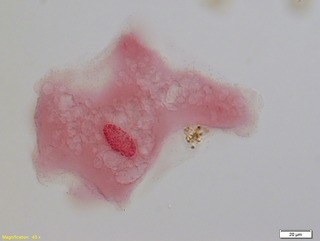
Endoplasm generally refers to the inner, dense part of a cell's cytoplasm. This is opposed to the ectoplasm which is the outer (non-granulated) layer of the cytoplasm, which is typically watery and immediately adjacent to the plasma membrane. The nucleus is separated from the endoplasm by the nuclear envelope. The different makeups/viscosities of the endoplasm and ectoplasm contribute to the amoeba's locomotion through the formation of a pseudopod. However, other types of cells have cytoplasm divided into endo- and ectoplasm. The endoplasm, along with its granules, contains water, nucleic acids, amino acids, carbohydrates, inorganic ions, lipids, enzymes, and other molecular compounds. It is the site of most cellular processes as it houses the organelles that make up the endomembrane system, as well as those that stand alone. The endoplasm is necessary for most metabolic activities, including cell division.
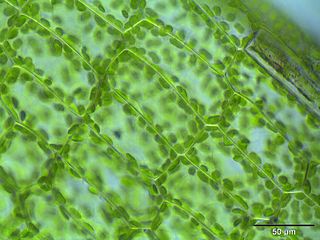
The following outline is provided as an overview of and topical guide to cell biology:

Pandemic is a cooperative board game designed by Matt Leacock and first published by Z-Man Games in the United States in 2008. Pandemic is based on the premise that four diseases have broken out in the world, each threatening to wipe out a region. The game accommodates two to four players, each playing one of seven possible roles: dispatcher, medic, scientist, researcher, operations expert, contingency planner, or quarantine specialist. Through the combined effort of all the players, the goal is to discover all four cures before any of several game-losing conditions are reached.
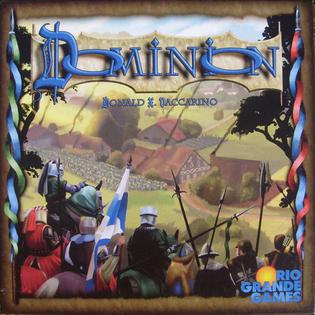
Dominion is a card game created by Donald X. Vaccarino and published by Rio Grande Games. Originally published in 2008, it was the first deck-building game, and inspired a genre of games building on its central mechanic. Each player begins with a small deck of cards, which they improve by purchasing cards from a common supply that varies from game to game. Cards can help the player's deck function, impede their opponents, or provide victory points. As of December 2022, fifteen expansions to the original Dominion have been released.
This glossary of biology terms is a list of definitions of fundamental terms and concepts used in biology, the study of life and of living organisms. It is intended as introductory material for novices; for more specific and technical definitions from sub-disciplines and related fields, see Glossary of cell biology, Glossary of genetics, Glossary of evolutionary biology, Glossary of ecology, Glossary of environmental science and Glossary of scientific naming, or any of the organism-specific glossaries in Category:Glossaries of biology.
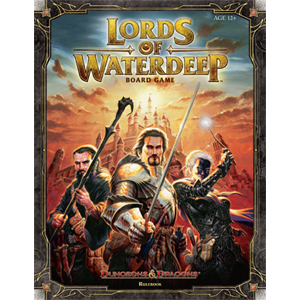
Lords of Waterdeep is a German-style board game designed by Peter Lee and Rodney Thompson and published by Wizards of the Coast in 2012. The game is set in Waterdeep, a fictional city in the Forgotten Realms campaign setting for the Dungeons & Dragons role-playing game. Players take the roles of the masked rulers of Waterdeep, deploying agents and hiring adventurers to complete quests and increase their influence over the city.

King of Tokyo is a tabletop game using custom dice, cards, and boards, designed by Richard Garfield and released in 2011. A New York City-based edition, King of New York, was published in 2014. The game was re-released in 2016, with all-new artwork and characters.

Freedom: The Underground Railroad is a 2013 co-operative board game designed by Brian Mayer and published by Academy Games, their first game in the Freedom Series. The game has drawn positive attention for its approach and handling of the topic.

Splendor is a multiplayer card-based board game, designed by Marc André and illustrated by Pascal Quidault. It was published in 2014 by Space Cowboys, Asmodee. Players are gem merchants of the Renaissance, developing gem mines, transportation, and shops to accumulate prestige points. Splendor received positive reviews and received numerous awards, including winner of Golden Geek Best Family Board Game, and nominated for the Spiel des Jahres Game of the Year in 2014. The game also received a mobile application and an expansion released in 2017.
This glossary of board games explains commonly used terms in board games, in alphabetical order. For a list of board games, see List of board games; for terms specific to chess, see Glossary of chess; for terms specific to chess problems, see Glossary of chess problems.

Broom Service is a role selection board game designed by Andreas Pelikan and Alexander Pfister, and published by Ravensburger. It won the 2015 Kennerspiel, the Spiel des Jahres connoisseurs game of the year award.

Photosynthesis is a strategy board game designed by Hjalmar Hach and published by Blue Orange in 2017.

Cartographers is a roll and write board game designed by Jordy Adan and published in 2019 by Thunderworks Games. It is part of the Roll Player universe. In the game, players aim to draw terrains based on drawn cards that award points based on the relevant letter cards. The game received positive reviews, and was nominated for the Kennerspiel des Jahres, but lost to The Crew. It was also runner-up to Parks for the Best Family Game of the 2019 Board Game Quests Awards. An app for solitary play was released in 2020.
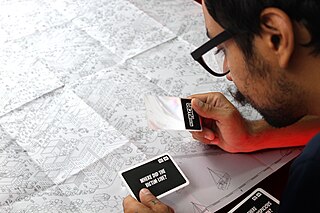
MicroMacro: Crime City is a cooperative tabletop crime-solving hidden object game designed by Johannes Sich and published in 2020 by Edition Spielwiese. The game received positive reviews and won the Spiel des Jahres in 2021. A sequel to the game, MicroMacro: Crime City – Full House was released in August 2021.
References
- 1 2 3 4 5 Jolin, Dan (20 April 2019). "The board games turning science into playtime". The Guardian . Archived from the original on 27 April 2021. Retrieved 27 November 2021.
- 1 2 Niebling, William (23 March 2017). "Biology meets worker placement in 'Cytosis'". ICv2. Archived from the original on 27 November 2021. Retrieved 27 November 2021.
- 1 2 3 4 5 Rosenwald, Alex (5 April 2018). "Cytosis Review". Board Game Quest. Archived from the original on 27 November 2021. Retrieved 27 November 2021.
- 1 2 3 4 McMillan, David (14 March 2017). "Cytosis – A Cell Biology Game Review". Meeple Mountain. Archived from the original on 27 November 2021. Retrieved 27 November 2021.